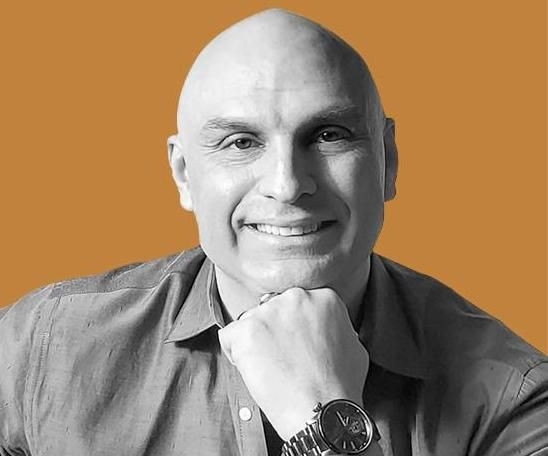Franchising Could Save Our Economy

COVID-19 has not just changed people’s lives, but their mindsets too. Many have had time to re-evaluate their personal and professional lives. As a result, millions have quit their jobs in the midst of a recession, and many have started their own businesses. This has come in the form of the Great Resignation; the Bureau of Labor Statistics indicates that an additional 3.9 million people quit their jobs in June 2021 alone.
It’s no surprise to me that the average American worker has begun to prioritize their happiness and wellbeing; the last 15 months have been incredibly stressful, and the tectonic underpinnings of our business, personal, and social lives are still shifting.
One of the somewhat unexpected results of the COVID-19 pandemic was cash accumulation. 2020 saw a record amount of personal savings accumulated by households, this may partly explain why the number of new businesses created in 2020 is at a 13 year high; COVID has given many a financial cushion to rest on.
That’s a positive, but that cushion won’t last forever. For those individuals shifting from the 9-5 life to being their own boss, there will be challenges. Starting a new business from scratch is tough; most don’t succeed. According to the Bureau of Labour Statistics, 45% of new businesses fail during the first five years, and 65% during the first 10. Many others are never really profitable.
Many of this new generation of entrepreneurs will look to the stability, proven model, and support structures that franchising offers to limit their downside exposure while breaking free from the work-to-live cycle.
We should be doing everything we can to support new businesses, reduce the colossal startup failure rate, and fuel the economic recovery we need.
That’s why I believe franchising should be part of our national economic recovery strategy. Franchising offers a middle road that keeps the upside of business ownership, while reducing the downside of starting a business in isolation -- it replicates some of the support and security of a full-time job, without the constraints. Franchises help to provide stable jobs, as well as job satisfaction and increased earnings for franchisees. It also allows rapid and low cost expansion for franchisors. Franchising brings a larger societal benefit as well. Franchises will employ some 8.3 million people, add nearly 800,000 new jobs, and contribute almost $500 Billion to the U.S. GDP in 2022.
Franchises are more likely to succeed because they are following the blueprint of an established business. A 2019 study shows that franchises are 8% more likely to succeed than independent businesses - at scale, that affects millions of individuals’ standard of living.
Too many start-ups take months if not years trying to prove their business model or raise funds. By then, it can be too late: the financial cushion the founder relied on has disappeared.
Some founders might feel that this isn’t ‘real entrepreneurship’ because the franchisor provides all the essentials – from equipment to finances to supplier connections – that are needed to kickstart a successful business.
But a good entrepreneur does everything they can to reduce their risk and maximize their reward. Sure, the franchisor’s brand already has a customer base with a demand for the product and an established brand reputation but the franchisee still needs to grow the business themselves.
I believe we are entering a golden age not only of business startup but of business expansion. Many small businesses did not survive the pandemic – around 37% closed in the US and approximately 250,000 closed in the UK in 2020.
Of course, not everyone was able to take part in the Great Resignation. Many of the still-employed are experiencing additional workloads while watching employers offer signing bonuses and pay structures to new hires that they likely had to work months or years to attain. This will likely either cause the Great Recession to continue, or perhaps have a “second wave”.
Pre-pandemic businesses that weathered the last 18 months are emerging into a new world: one with more room to negotiate leases, less competition in the market, and more people ready to go into business themselves. Many are entering this new normal in a similar cash situation as those participating in the Great Resignation; PPP and EIDL likely significantly reduced their expenses over the last year, and the fact is if they made it through the pandemic they almost certainly had a strong model beforehand.
I’ve had more people contact me looking to franchise their business since October 2020 than I did in the previous three years combined. They are not looking to emerge from the pandemic “business as usual” style; they are ready to use this generational opportunity to springboard their business. Because the franchise model of expansion requires less capital outlay, has a spread of risk, and can be scaled much faster, franchising their business can be a very attractive growth model for these entrepreneurs.
They will likely find eager partners from the pool of folks that didn’t participate in the first wave of the Great Resignation; those who didn’t receive any recognition for their loyalty as their employers tried to romance potential new hires, and who know that financial freedom doesn’t have to mean abandoning all professional and personal stability.
Entrepreneurship isn’t for everyone, but franchising could be.
About the author:
Michael Peterson is the founder and President of Franchise Beacon, a boutique consulting firm that helps businesses become franchisors, and franchisors find the right franchise candidates.





















